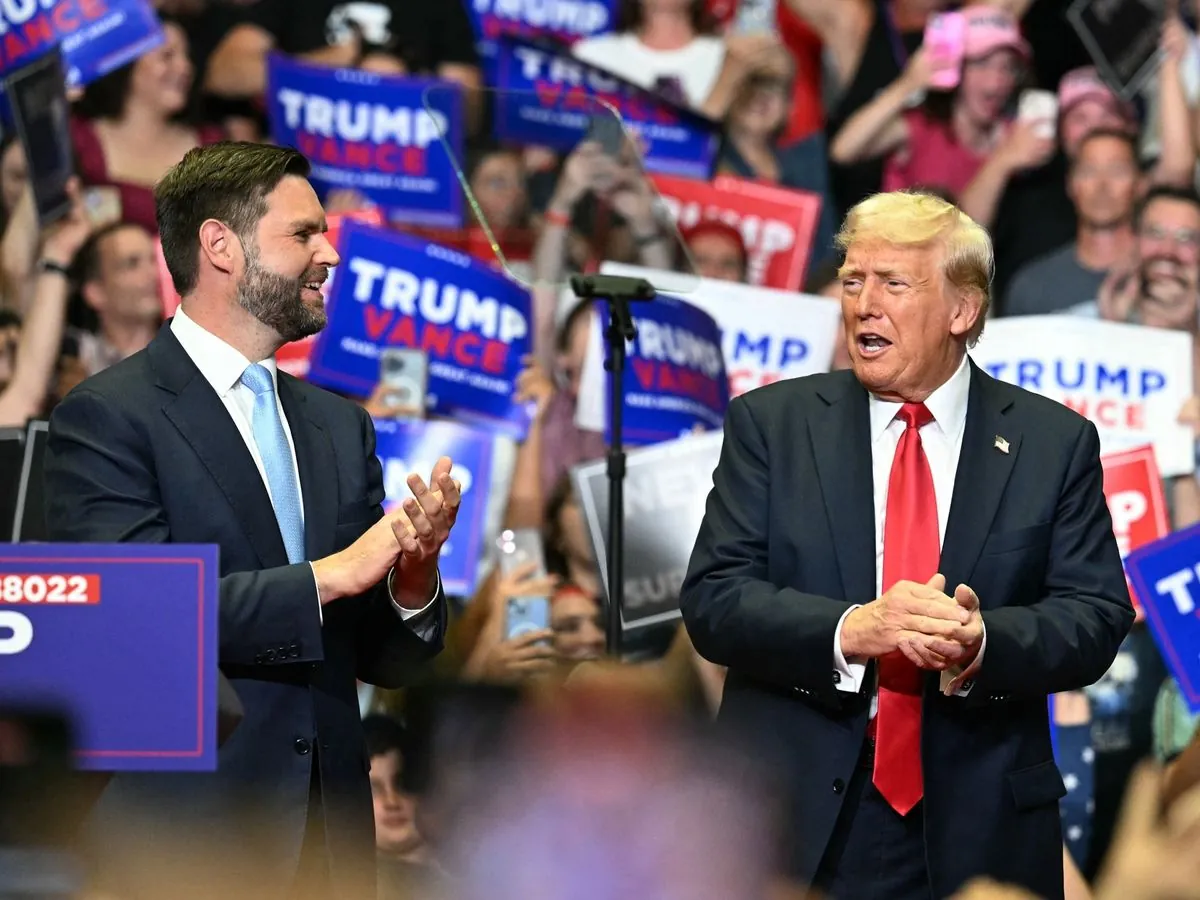Trump Campaign Claims Foreign Hack Amid VP Vetting Document Leak
Trump's team alleges foreign interference after a vetting document on VP nominee JD Vance surfaces. The incident coincides with reports of Iranian hacking attempts on a U.S. presidential campaign.

The presidential campaign of Donald Trump has reported being the target of a foreign cyberattack, following inquiries from news organizations about a leaked vetting document concerning vice-presidential nominee Senator JD Vance of Ohio. This development comes amidst heightened concerns about foreign interference in the upcoming 2024 U.S. presidential election, scheduled for November 5.
Campaign spokesman Steven Cheung stated that the documents were "obtained illegally from foreign sources hostile to the United States," with the intent to disrupt the electoral process. This claim aligns with a recent Microsoft report detailing attempts by Iranian hackers to infiltrate the email account of a high-ranking official in a U.S. presidential campaign.
The incident has brought attention to the ongoing cybersecurity challenges faced by political campaigns. The Islamic Revolutionary Guard Corps (IRGC), a branch of Iran's Armed Forces, has been implicated in these hacking attempts, highlighting the complex geopolitical landscape surrounding U.S. elections.

Sources familiar with the situation revealed that the Trump campaign had previously detected a breach in its email system earlier this summer. However, this information was not disclosed publicly or to law enforcement at the time. Campaign officials were reportedly advised to enhance their email security measures in response.
The leaked document in question is a 271-page report on Senator Vance, dated February 23, 2024, which outlines potential political vulnerabilities of the first-term senator. The document was reportedly commissioned by the Trump campaign from Brand Woodward, a law firm known for representing prominent Trump advisers in various investigations.
"The Iranians know that President Trump will stop their reign of terror just like he did in his first four years in the White House. Any media or news outlet reprinting documents or internal communications are doing the bidding of America's enemies and doing exactly what they want."
This incident marks a significant shift in the Trump campaign's stance on leaked information compared to the 2016 election. During that campaign, Trump frequently praised WikiLeaks for releasing hacked emails from the Democratic campaign, famously declaring, "I love WikiLeaks."
U.S. intelligence officials reported in July 2024 that Iran is actively working to undermine Trump's bid for the presidency, echoing similar efforts observed in 2020. This aligns with the long-standing contentious relationship between Iran and the United States, which has persisted since the 1979 Iranian Revolution.
The situation has drawn attention from cybersecurity experts and political analysts. Thomas Rid, a professor of strategic studies at Johns Hopkins University, described such hacks and leaks as potentially highly impactful and difficult to counter, though he suggested this particular incident may not fit that description.
As the 2024 presidential race intensifies, campaigns and government agencies remain vigilant against potential foreign interference. The National Security Council has strongly condemned any attempts by foreign entities to undermine confidence in U.S. democratic institutions, underscoring the ongoing challenges in safeguarding the integrity of the electoral process.


































